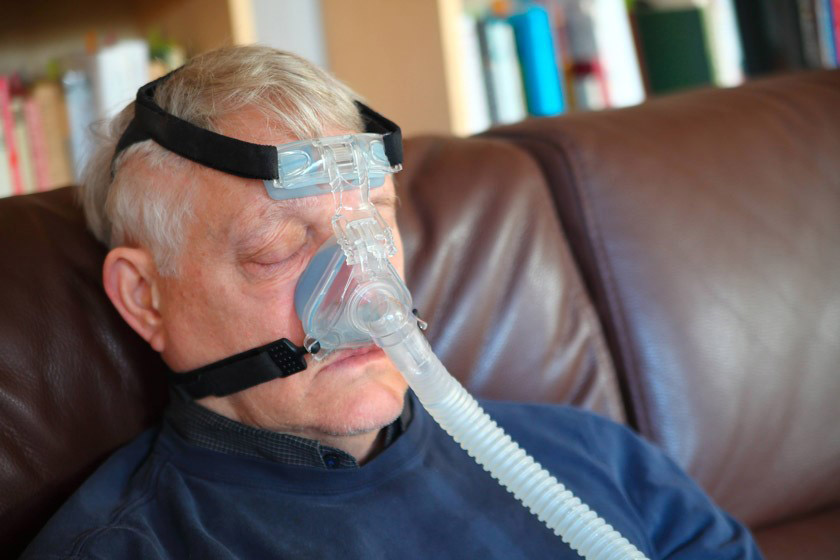
Super Useful Tips to Handle Snoring Issues
Can you believe load snoring is the third most common reason for divorce, behind infidelity and finances? This is so common that probably all of us have snored in our sleep at least one time. Generally, it’s not something to be concerned about unless the case is difficult to handle or causes marital problems.
This article will give you some suggestions for better sleep, introduce how to stop snoring exercises, and talk about some of the available treatments for seniors.
Contents
What Is Snoring?
In simple terms, snoring is noisy breathing. It happens when air movement causes the relaxed tissues to vibrate in your throat. As a result of this vibration, your throat produces hoarse sounds. Snoring is a condition that is common to most people, but it usually gets worse as you age for many reasons, including fatigue during old age. A partner, roommate, or family member can become very unhappy when a bedmate or roommate snores. People may find themselves unable to sleep well and even decide to sleep in separate rooms. For such reasons, it’s only natural to want to stop snoring.
Do not forget that almost every routine in your lifestyle, from your diet, night sleep schedule, water intake, and many other factors, affects your snoring condition. A wise move would be to try out trending diets for seniors that include foods to help seniors sleep better.
Should I Be Concerned About Snoring?
Usually, snoring is not a bad sign. But if you keep snoring every night, you might disturb the quality of sleep for yourself and those who sleep near you. Snoring is often associated with obstructive sleep apnea (OSA), one of the elderly sleep disorders. Consider seeing a doctor for further examinations if any following symptoms accompany snoring. It is best to keep an eye on these risk factors and regularly measure seniors’ vital signs.
- Breathing pauses during sleep
- Having a sore throat when you wake up
- Excessive daytime sleepiness or fatigue
- Unrestful sleep at nights
- Having problem concentrating
- Chest pain at night
- Headaches in the mornings
- Obesity or sudden weight gain
- Feeling like you are choking in the middle of the night
- High blood pressure
How can I stop snoring naturally tonight?

Severe or not, you cannot deny that snoring can be annoying for you and others. Hence you might want to try stopping it. There are some simple, almost effortless ways you can try to stop your snoring naturally.
1. Watch Your Weight
We are not saying that only overweight people snore, but there is a possibility that your snoring may be because of gaining weight, especially around the neck.
2. Avoid Alcohol and Sedatives
Alcohol and sedative medications affect the muscles in the back of your throat so that they can be a frequent promoter of snoring.
3. Change Your Sleeping Position
Sleeping on your back makes it easier for your airway to become obstructed. Being forced to adapt to a new sleeping position is difficult when you have spent a lot of your life sleeping in one position. But it is helpful.
4. Sleep with Your Head Elevated
Elevating the top part of your bed can reduce snoring. The entire mattress has to be raised rather than just an extra pillow.
5. Leave Nasal Passages Open
Eliminating allergies or other sources of nasal congestion can aid in the prevention of snoring. During the night, breathing strips that cover your nose may open your nasal passages and internal nasal expanders. Remember, this is only helpful if you snort through your nose.
6. Develop Good Sleeping Habits
Do not drink alcohol right before bed, and try to get the recommended sleeping time. You are more likely to snore if you overtire yourself and then go to bed.
7. Change Your Pillows
Dust mites accumulate in pillows and can cause allergic reactions that lead to snoring. One other thing to consider is that, although no one can deny the benefits of keeping pets for seniors, allowing pets to sleep on the bed causes you to breathe in animal dander, another common irritant. It is recommended to air fluff your pillows twice a weekend and replace them every six months to minimize dust mites and allergens. Also, keep your pets out of the bedroom.
8. Stay Hydrated
That is right; water is also an answer here. According to the Institute of Medicine, women need about 11 cups of total water (from all drinks and food) a day; this amount goes up to 16 cups in men.

Exercises to Help Stop Snoring
Besides all the ways we have told you about so far, there are also easy exercises for better sleep for seniors. Some of these exercises help stop snoring and sleep apnea. People tend to snore more often when their airway muscles loosen. Stronger tongue, throat, and mouth muscles decrease snoring.
Anti-snoring mouth exercises have shown most effective in people with mild snoring and usually must be completed daily for two or three months. Mouth exercises should be performed for at least 10 minutes per day for three months to reduce snoring or OSA. The exercises are usually performed twice a day by most people. For people with mild snoring, mouth exercises with anti-snoring signs are effective and usually have to be performed daily for about two or three months. Based on the existing research, it is best to do mouth exercises for at least 10 minutes per day for three months to notice a reduction in snoring or OSA. The exercises are usually performed twice a day by most people.
Tongue Exercises
- Slowly slide your tongue backwards with your tip moving along the roof of your mouth while placing the tongue tip against the back of your top front teeth. Repeat 5-10 times. Exercises like this help strengthen your tongue and throat muscles.
- Stick out your tongue as far as possible. While looking at the ceiling, touch your chin with your tongue. Hold for 10 – 15 seconds. You can gradually increase this duration. Repeat five times. This exercise Increases tongue strength
- Stick your tongue upward against the roof of your mouth and press your entire tongue against it. Hold this position for 10 seconds. Repeat five times. This exercise Improves tongue and soft palate tone and strength
- Make sure the tip of your tongue is in contact with your lower front teeth, and then push your tongue back flat against the floor of your mouth. Hold this position for 10 seconds. Repeat five times. This exercise Improves tongue and soft palate tone and strength.
Breathing Through Your Nose
Relax your jaw and keep your mouth closed as you breathe in through your nose. Next, cover one nostril with a finger or knuckle. Exhale through the open nostril. Repeat this exercise ten times while switching between nostrils. By practicing this exercise, you can stabilize your airway during sleep.
Pronouncing Vowel Sounds
The muscles in your throat are engaged when you say different vowels, so intentionally repeating them can help tone those muscles.
Repeat the vowel sounds a-e-i-o-u. It is best to pronounce the vowels normally at first, then accelerated. Adjusting the speed with which you say the vowels is up to you. Repeat the same sound 10 or 20 times in a row, and then switch to a different vowel. You can also combine sounds and repeat those.
Singing
Believe it or not, singing does help with snoring. Vocal cords produce a variety of sounds, including vowels. You can reduce snoring through focused singing training. Instead of just singing normal lyrics, focus on repeating and pronouncing individual sounds as loudly as possible.
Other Treatments
The anti-snoring: mouthpiece is designed to prevent your tongue from falling back when you sleep, therefore preventing your airway from being blocked while you are sleeping. Mandibular advancement products and tongue retaining devices are two of the most common anti-snoring mouthpieces. Specifically, mandibular advancement devices are effective with not only snoring but mild to moderate OSA as well.

Positive Airway Pressure Devices: Continuous positive airway pressure (CPAP) machines are among the most common treatments for sleep apnea in adults. The mask and hose push air into the airway, preventing obstructions. Most people find that they get comfortable with a PAP mask over time and find that it can reduce snoring and improve sleep.
Surgery: Surgery usually is the last option if no other option works. Removing nearby tissues in a procedure called Uvulopalatopharyngoplasty, this type of surgery can widen the airway. Surgeries can also remove nasal polyps, a deviated septum, or anything else that has blocked the nasal passages. There are other types of less-invasive surgeries, but clinical trials have limited evidence regarding their benefits and downsides.
Conclusion
In conclusion, although snoring is generally not that big of an issue, remember that the one who suffers most from your snoring is your partner, children, or anyone who sleeps in the same room as you. So even if you think you can live with it, make sure to check if others can live with it as well. If not, you might want to consider these methods, mentioned above.
Every time my husband sleeps on his back, he starts snoring. But this rarely happens when he sleeps on his side. However, I’m not sure if it’s his sleeping position or the anti-snoring pillow.
My father is the same. Every time he sleeps on his back, he snores. Sometimes I have to wake him up to correct his sleep position.
Thank you, this was very useful. I haven’t been able to stop snoring for a long time. It keeps bothering my husband. Although he doesn’t say anything, I know it’s annoying. I’ll try to do what this article told me.
You can also try changing your pillows or even mattress. There are anti-snoring pillows that may help you. I got one last year, it has helped me a lot, or it’s just because I have lost weight since last year! Good luck!
Oh! Snoring is a disaster for my wife and me! But I can’t stop snoring! I went to many doctors, especially digestion specialists, but they never solve my problem. Because my digestion system works perfectly, and I don’t have extra weight! I also try to change my sleeping position time by time! But that disgusting snore never disappeared! So my question is, what should I do to break the chain and have a more comfortable sleep and don’t disturb anyone!?